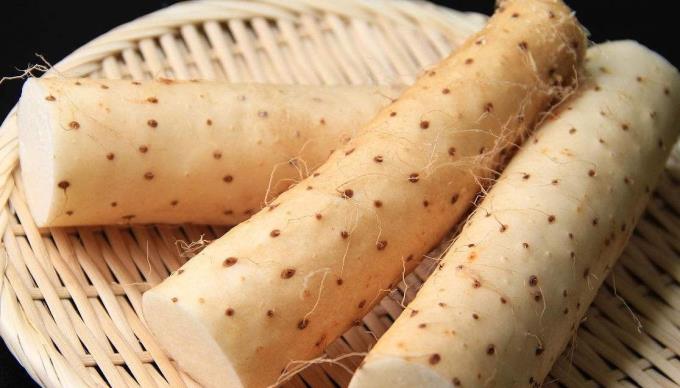The effects of tubers on the health of pregnant women have been recognized by many experts. However, if used incorrectly, you can still run into certain risks.
Pregnancy is a very important stage for women. During this period, you will have the best memories but also face a lot of anxiety. Nutrition during pregnancy is a top concern because there are foods that may not be good for your health and your baby's development. If you are looking to add tubers to your diet but are worried about its effects on your health, the following shares of aFamilyToday Health will definitely help you a lot.
Pregnant women eat tubers good?
Root bulbs contain many healthy nutrients such as:
Water: 70.5%
Protid: 14%
Lipid: 0.1%
Glucid: 26.1%
Cellulose: 1.1%
Minerals: 0.6%
According to Oriental medicine, this is also a kind of tuber that is calm, has anti-fatigue effects, detoxifies the body and cures many diseases. Therefore, pregnant women can completely eat potatoes with a moderate amount, properly.
Effects of tubers on the health of pregnant women

If you like to eat yam, you can still continue to eat this dish during pregnancy. Not only that, but this vegetable can also bring you a number of health benefits such as:
1. Treatment of morning sickness
Morning sickness is one of the most common symptoms of pregnancy. Sweet potatoes are rich in vitamin B6, a substance that can help reduce nausea and vomiting. Therefore, pregnant women eat sweet potatoes can ease morning sickness symptoms.
2. Regulate blood pressure
The root is rich in potassium, a mineral that controls blood pressure. If gestational blood pressure is high, you are very likely to experience dangerous complications.
3. Rich in antioxidants
In addition to potassium and vitamin B6, roots also contain a lot of antioxidants such as beta-carotene and vitamin C. These work to protect you from common illnesses such as colds, flu , and prevent oxidative stress and cancer. letters.
4. Aids in digestion
Pregnancy is a time when your hormones are going to have a lot of fluctuations. This condition causes many problems, but the most worth mentioning is problems with digestion. The root is rich in easily digested starch and fiber, which helps to improve common pregnancy problems such as constipation , bloating, indigestion ...
5. Prevent anemia
Anemia is also a fairly common problem pregnant women encounter during pregnancy. To prevent this, regular rooting is an option that you can consider because it contains a lot of minerals such as zinc, copper and iron to help treat anemia.
6. Rich in folic acid
Folic acid is an extremely important nutrient for the health of pregnant women. The reason is that this nutrient works to help protect the baby from the risk of birth defects such as spina bifida, neural tube defects ... In the root contains a lot of folic acid, so it has can bring you and your baby certain health benefits.
7. Rich in vitamin A
In the rhizome has a amount of vitamin A that helps strengthen the immune system for both your baby and you. Therefore, adding tubers to your diet will help you pass 9 months of pregnancy easily and have a healthy baby.
8. Prevent premature birth
Iron deficiency is the leading cause of preterm birth . Tubers are rich in iron, so pregnant women who eat a lot of tubers can reduce the risk of preterm birth and low birth weight.
9. Helping bones strong
Root bulbs are rich in calcium, so pregnant women eat a lot of tubers will help "strengthen" the strength of the bones. Not only that, the baby in the belly will also have enough "materials" to build strong bones and teeth.
Side effects may be encountered when pregnant women eat tubers
Although rhizomes have many effects on the health of pregnant women, if you eat too much, you still run the risk of some side effects. Roots are very hypoallergenic, but you should still be cautious. Here are a few things you should keep in mind:
If you have kidney stones, consult your doctor before taking them because most vegetables often contain small amounts of oxalate, which can cause kidney damage.
If you have a sensitive digestive system, limit your intake of potatoes slowly as otherwise, you may experience symptoms such as nausea, vomiting, headache and diarrhea.
Pregnant women should not eat raw tubers because they can cause poisoning.
You should grill the tubers before cooking to reduce plastic, limit toxicity, and good for health.
In addition, pregnant women should also limit eating too many bulbs because they easily suffer from gas, stomach pain and indigestion.
Delicious soup from tubers for pregnant women

1. Sweet potato soup from cooking silver shrimp
Resources:
500g tubers
200g small silver shrimp
Seasoning vegetables: spring onion, purple onion, braised vegetables, cilantro
Spices: salt, pepper, sugar, seasoning seeds
Doing:
The potatoes are slowly peeled, washed, sliced, then smashed with a large knife. Leave the shrimp in its shell, wash it, then crush it, marinate the chopped purple onion, seasoning, and pepper for about 10 minutes.
North the pot on the stove, add some cooking oil, hot oil, let the marinated shrimp and fry it to absorb, then pour water. When the water is boiling, add the potatoes slowly, occasionally skimming the broth. Seasoning to taste, cook until sweet potatoes, turn off the heat.
When eating, ladle soup into a bowl, sprinkle with pepper and seasoning vegetables. If you eat it with pickles or meat with pepper, it will be extremely attractive.
2. Root soup from cooking ribs
Resources:
300g pork ribs
2 tubers
Seasoning vegetables: purple onion, green onion, coriander
Spices: pepper, salt, seasoning ...
Doing:
With pork ribs, you chop pieces, rinse, then bare through boiling water and rinse with water again. The tubers are peeled, washed, and sliced to taste.
Place the pot on the stove, turn on the heat and then add the dried onion to the fry, then add the ribs to fry, season with fish sauce. Put the water in the pot to boil with the ribs, the boiling water, turn to low heat.
When the ribs are cooked, add the tubers, add water and spices depending on your preference. When the tubers are tender, you add pepper, cilantro and green onions, stir well, turn off the heat, then scoop into a cup and enjoy.
3. Potato soup from cooked beef
Resources:
400g tubers
100g of beef
Cinnamon vegetables, onions
Spices: Sugar, salt, seasoning seeds, pepper ...
Processing:
The potatoes are slowly washed, peeled, then grated. Ground beef or minced beef.
Fry a little onion and minced garlic and add the beef to fry, season to taste, then pour water. When the water is boiling, add the potatoes slowly, stir well to make the potatoes bloom, you can add water depending on your preference.
Season to taste, turn off the heat, ladle soup into a bowl, add pepper, cinnamon and enjoy.
Like other root vegetables, tubers can provide certain health benefits. You can add tubers to your diet, but don't forget some of the above notes.













